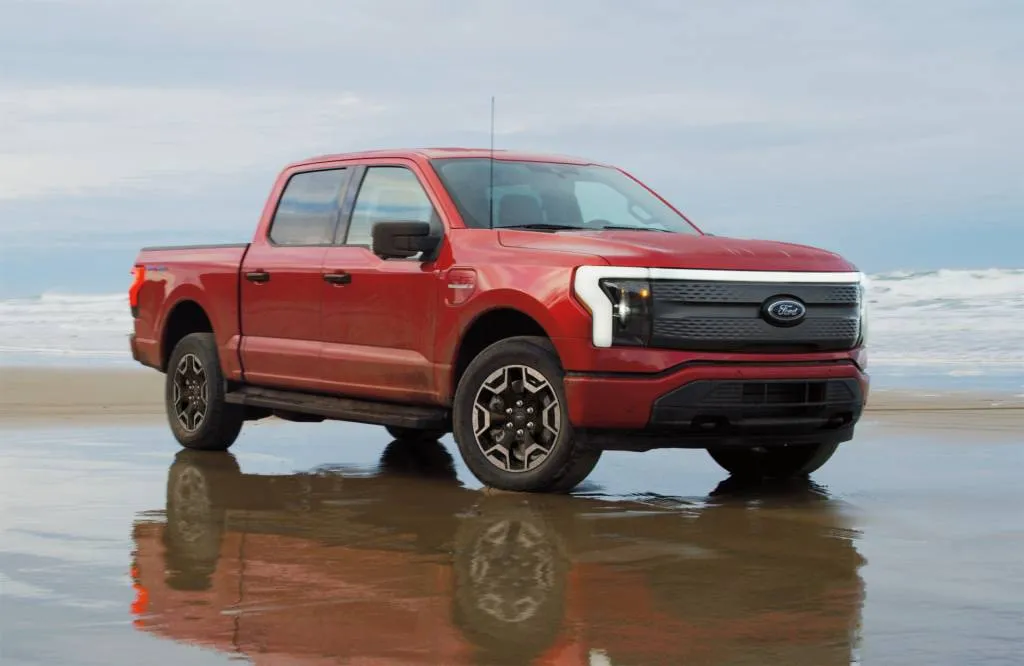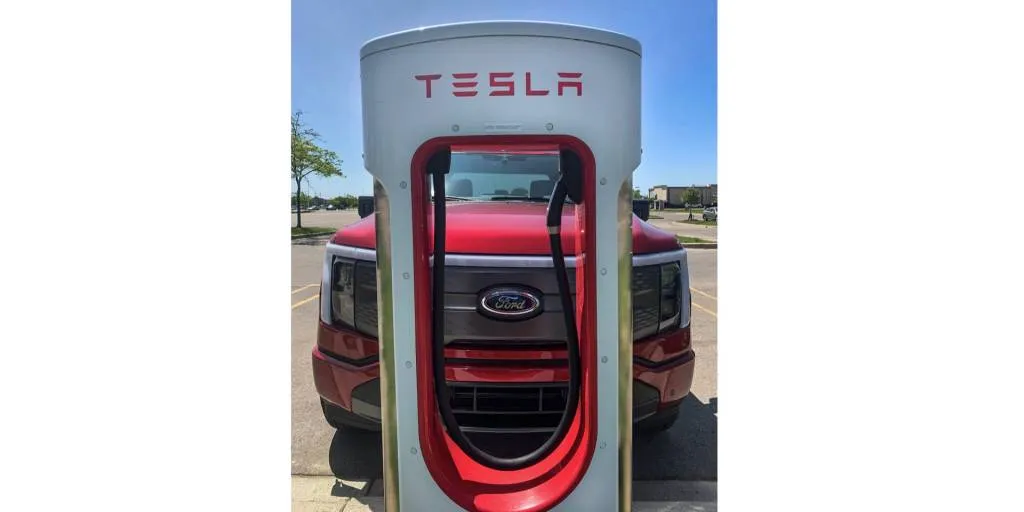Ford CEO Jim Farley embarked on an EV road trip in an F-150 Lightning pickup truck to gain insight into the experiences of Ford's EV customers.
Farley and his party set off this week from Silicon Valley, driving south to Los Angeles and then northeast to Las Vegas, traversing parts of the iconic Route 66 along the way, the Ford CEO wrote in a LinkedIn post. Among the planned stops will be a charging station that Farley says prompted Ford's deal to adopt the Tesla charge port, known as the North American Charging Standard (NACS), for future EVs.

2023 Ford F-150 Lightning
Along the way, Farley plans to visit "researchers, businesses, dealers, salespeople, EV conversion shops, EV drivers, and communities" and use the same roads and charging infrastructure as ordinary EV drivers, in order to learn about the real-world experience of EV use. Farley noted that earlier in his career at Toyota, he applied insights from another road trip to improving the automaker's bread-and-butter Camry midsize sedan.
"Listening is how we learn," Farley said, "and that's what we'll be doing from the road."

Ford F-150 Lightning at Tesla Supercharger
Farley may already be aware of one of the biggest issues in the current EV climate. In a discussion of Ford's quarterly earnings report last week, he confirmed the automaker is lowering its 2023 EV production targets. Farley pointed to cost as the main reason, saying that more than 30% of consumers intend to buy an EV, but that high purchase prices are holding many potential customers back. He previously pointed to the start of an EV price war earlier this year.
The F-150 Lightning has won the approval of truck buyers and media—in a first drive we found it to be nothing short of revolutionary—but it's also a poster child for EV price inflation. While Ford in July lowered the price of the Lightning by $9,979 on the base Pro model, it had previously raised prices four times since the truck's launch in April 2022. Even with the price cut, the current base price of $51,990 (including a $1,995 destination charge) is still 25% higher than the $41,669 base price from the time of its introduction.












